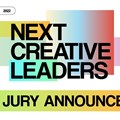There is a need for greater representation of neurodivergents in the workplace, with creative industries in particular doing themselves a disservice by not having more inclusive recruitment policies.

Source: iStock.
This was the central theme of Clinton Middleton's presentation at the Nedbank Integrated Marketing Conference, which attracted 30 thought leaders, both African and international, who provided insights, stories and strategies to help businesses hit that sweet spot of relevance.
The topic of Middleton's presentation: Neurodiversity in advertising: your relevance advantage.
Middleton is the chief executive officer of coaching practice GrowThrough where he facilitates introverts in the advertising industry in overcoming their fear of public speaking. The author of Your Only Limit Is You - An Empowering Guide To Prosper with ADHD, he spent 14 years in the advertising industry leading large teams for local and multinational clients such as Coca Cola, Deloitte, Dimension Data, Ford, Old Mutual and P&G.
He was diagnosed with ADHD at 30.
But what exactly is neurodiversity?
Middleton explains: "Neurodiversity was defined by Judy Singer, an Australian sociologist in the late 1990s. It refers to the variations in cognitive functioning and is used to describe people who have conditions such as autism, ADHD, dyslexia and dyspraxia."
"Perhaps another way to consider this is that perhaps there is a healthy type of brain or mind or one right style of neurocognitive functioning, that is a culturally constructed fiction, and that it is no more valid or conducive to a healthy society or to the overall wellbeing of humanity than the idea that there is one right or normal ethnicity, gender of culture."
Popularisation of neurodiversity
American journalist, Harvey Blume helped popularise the term in 1998 saying "neurodiversity may be every bit as crucial for the human race as biodiversity is for life in general. Who can say what form of wiring will be best at any given moment?"
Middleton articulated that "neurodivergent thinking allows you to generate new ideas, and put together seemingly unrelated concepts.
"In the advertising industry that is a superpower," he says.
"Neurodivergent celebrities such as Will Smith, Billy Eilish, Jim Carrey and Whoopie Goldberg have used their divergent thinking to thrive in industries such as film, art and music.
"In business, Elon Musk and the late Steve Jobs used their divergent-thinking brains to find unique solutions to problems, resulting in the most valuable companies in the world. Can you imagine what the world would be like without Apple? Look how much the creative industry has benefitted from Steve Jobs' relentless desire to break the status quo.
"Similarly, Elon Musk is on the way to making us an interplanetary species, unlike some of the best and brightest minds at Nasa who were unable to do so. Our world has benefited in numerous ways due to the divergent thinking these individuals have brought, and the countless others who are making meaningful shifts across all industries in sectors around the world."
But Middleton cautions "just as with other forms of diversity, any discussion or approach to neurodivergence should be nuanced because the term encompasses a wide range of traits as well as much variance between each condition.
"Certain stereotypes such as the common perception that everyone with autism is good at maths, or resembles the savant protagonist's [brilliance in music] in the 1988 film Rain Man may hold many back from a deeper understanding of neurodiversity and how it can be best harnessed."
Harnessing strengths and unique capabilities
"The neurodiversity movement highlights these unique trends and argues that the ability of neurological differences should be accepted and respected in the same way as other types of diversity are," Middleton says.
Raising mindfulness of neurodivergents' make-up is key to harnessing their strengths.
"Diagnosed with ADHD at 30, I wasn't the type of kid who bounced off of walls, was highly talkative in class or disruptive. Rather I struggled with prioritisation, focus and impulse control, which meant that academics were a challenge," Middleton said.
"My teachers often associated my inability to perform with being lazy or disinterested. The truth is I was bored with most classes, but I wasn't disinterested in everything, because when I was interested in something like business, economics and computers, I had no problem focusing.
"Therefore it was not my ability to focus that was the challenge, but rather my ability to regulate my attention.
"Fast forward four years, and I find myself starting work in advertising, where different ways of thinking is encouraged. I found myself in an environment where I thrived."
Therefore, Middleton found that it's not surprising that the proportion of people who are neurodiverse across all creative industries is almost double that of the general public.
Diversity makes business sense
Hiring neurodiverse employees with their unique talents, perspectives and skills can provide companies with a competitive edge that brings measurable benefits, both financially and in terms of workplace culture, a report found.
Neurodivergents' abilities such as visual thinking, attention to detail, pattern recognition, visual memory, and creative thinking can help illuminate ideas or opportunities work teams might otherwise have missed.
Furthermore, research suggests particular synergy with neurodivergent workers can arise within certain roles.
A 2021 study by JPMorgan Chase, which hired more than 79 employees with autism between 2015 and 2018, found that neurodivergent employees in certain tech roles could be up to 140% more productive than neurotypical colleagues.
And yet, when employers from creative industries were asked about their approach to neurodiversity, statistics reveal that - while 96% of them believe there are benefits to having a neurodiverse workplace and know the benefits of having a neurodiverse workspace - 75% do not have policies and procedures in place for neurodiversity.
77% said adapting to provide a more neurodivergent-friendly environment is not a priority over the next 12 months.
The barriers to employers in creative industries hiring neurodivergents show that 60% of employers lack understanding and awareness of neurodiversity, 71% lack experienced managers and 55% cite time constraints and other priorities.
The road to inclusion is simple
Yet, with a few minor adjustments, providing a work environment neurodivergent individuals can thrive in is relatively simple.
JPMorgan Chase has an Autism at Work programme, which advocates for the recruitment, support and retention of neurodivergents, as does SAP that is proud to have a 90% retention rate of hires on the autism spectrum because it creates a system of support around those employees.
In 2016, Deutsche Bank offered autistic graduates 12 weeks' experience.
They found small changes made a big difference.
They restructured their recruitment process because while many autistic graduates are supported through school and university, many are unintentionally shut out by application systems designed for neurotypical people.
As a result, in this trial, Deutsche Bank did away with timed assignments as part of their employee application process; they replaced these with a series of questions graduates had one week to respond to. Every successful applicant was assigned a mentor and their line managers and colleagues received specific training on how to work with them.
Flexible working hours, clear communication and active listening benefited not only their autistic graduates but added value to existing employees.
Time to think long term
Middleton says that advertising industries not looking into similar programmes is shortsighted, as many of the consumers they're trying to reach could be neurodivergent too.
An estimated one in seven consumers, or nearly 15% is neurodivergent in some way.
"For the advertising industry to thrive, there needs to be change at grassroots level."
Providing neurodivergents with support from a young age is the key.
An organisation called Islands of Brilliance - which provides neurodivergent children with the ability to develop skills and design - pairs neurodivergents with mentors across the advertising industry.
Today thousands of children have enrolled in that programme with mentors across the world.
The mentors are finding unique ways to leverage their members' strengths and harness their capabilities and provide work opportunities to these individuals once they reach the age of employment.
"This is important because younger generations are noticing representative advertising at the time of purchase, and future generations of diverse communities are expecting more from us," says Middleton.
Authentically inclusive marketing is a business imperative for all organisations, and a 2022 Deloitte trends report found that high-growth brands are establishing key performance metrics for diversity, equity and inclusion objectives.
"It will be the creative industry that will need to adapt to the landscape, to provide more opportunities for neurodivergent talent by implementing a neurodivergent strategy that will allow them to attract and retain creative talent.
"The onus will be on them to provide appropriate help and support to neurodivergent staff, and ensure the makeup of their teams are neurodivergent so that they can develop more relevant communication for future generations to come."
Bizcommunity is a proud media partner of the Nedbank IMC











































